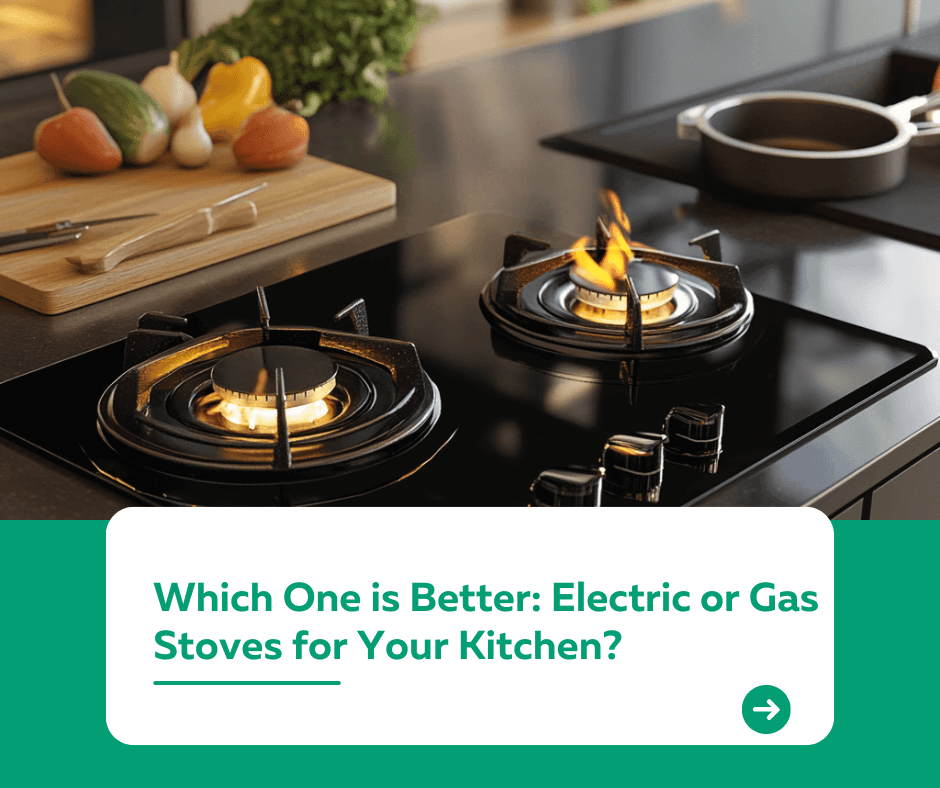
Introduction
Choosing the right stove for your kitchen is an important decision that can impact your cooking experience. Which one is better: electric or gas stoves? Both options have their unique features, pros, and cons. Let’s explore their differences to help you decide which one suits your needs best.
1. Overview of Electric Stoves
Advantages
✅ Ease of Use: Electric stoves are simple to operate with consistent heat.
✅ Sleek Design: Often feature a modern, smooth glass-ceramic surface.
✅ Safety Features: Come with indicators to show when the surface is still hot.
✅ Low Maintenance: Easier to clean compared to gas stoves.
Disadvantages
- Slow Heating: Takes longer to heat up and cool down.
- Power Dependency: Won’t work during power outages.
- Durability: Glass surfaces can scratch or crack with heavy cookware.
2. Overview of Gas Stoves
Advantages
✅ Precise Heat Control: Immediate response for temperature adjustments.
✅ Versatility: Works well for all cooking styles, including grilling and searing.
✅ Works During Outages: No electricity needed.
✅ Cost Efficiency: Typically cheaper to operate in the long term.
Disadvantages
- Cleaning Challenges: Grates and burners require more effort to clean.
- Safety Concerns: Potential risks of gas leaks or open flames.
- Installation Costs: Requires a gas line setup.
3. Key Comparisons
| Feature | Electric Stoves | Gas Stoves |
|---|---|---|
| Heat Control | Steady but slower adjustments | Precise and instant |
| Maintenance | Easy to clean | More effort required |
| Installation | Simple plug-in setup | Requires a gas line |
| Operating Cost | Higher in the long term | More cost-effective |
| Cooking Styles | Great for slow cooking and baking | Best for high-heat and fast cooking |
4. Which One Should You Choose?
Choose Electric Stoves If:
- You prioritize ease of cleaning and a sleek design.
- Your cooking style involves baking or slow-cooking.
- You live in a place without a gas connection.
Choose Gas Stoves If:
- You need precise heat control for diverse cooking techniques.
- You prefer cost efficiency in the long run.
- You want a reliable option during power outages.
5. Tips for Choosing the Right Stove
- Assess Your Cooking Style: Do you bake often or prefer high-heat searing?
- Consider Your Budget: Factor in installation and operating costs.
- Check Energy Availability: Ensure access to a gas line if opting for a gas stove.
- Think About Maintenance: Choose based on how much time you’re willing to spend cleaning.
Conclusion
Both electric and gas stoves offer unique benefits, and the best choice depends on your cooking habits, budget, and kitchen setup. Electric stoves provide ease and aesthetics, while gas stoves offer precision and versatility. Consider your priorities to make the right decision.
For more kitchen insights, visit our Kuestion.com.